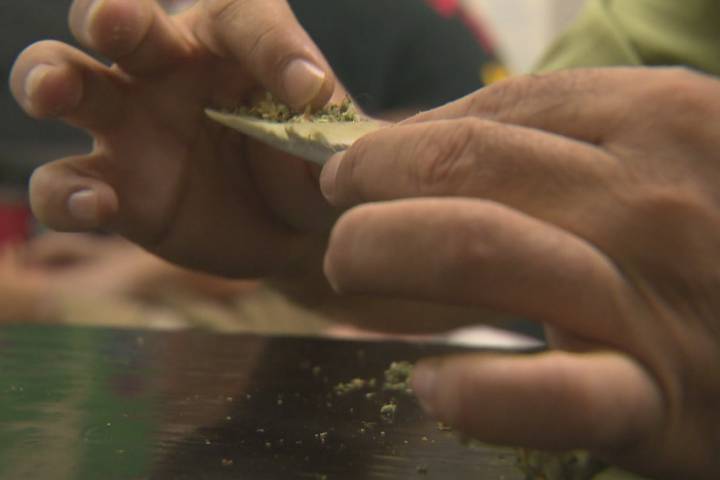I m intrigued by the possibility that by the next time south suburban voters head to polls to choose a president in 2020, recreational use of marijuana could be legal in Illinois.
State lawmakers are deliberately studying the issue and weighing many pros and cons. Discussion points include potential tax revenue, public health considerations and how legalization would impact the criminal justice system.
“We’re doing it slowly,” state Sen. Toi Hutchinson, D-Olympia Fields, told me. “We would be the first state to do it legislatively,” as opposed to a citizen-led ballot initiative.
I sought out Hutchinson’s views because of her national perspective on the topic. As president-elect of the National Conference of State Legislatures, she’s familiar with how other states are handling the issue.
Recreational use of marijuana is legal in seven states and the District of Columbia. Medical marijuana programs have been approved in 29 states, including Illinois.
Cook County residents, who account for 40 percent of the state’s population, will have their say on the question in three months. The Cook County Board last week unanimously decided to place a nonbinding, advisory referendum on March 20 ballots.
“Shall the state of Illinois legalize the cultivation, manufacture, distribution, testing, and sale of marijuana and marijuana products for recreational use by adults 21 and older subject to state regulation, taxation and local ordinance?” the question will read.
Public opinion on the issue has evolved since the days of “Reefer Madness,” a 1936 anti-pot propaganda film. Two-thirds of Illinois voters surveyed in March supported legalization for recreational use, Southern Illinois University Carbondale’s Paul Simon Public Policy Institute reported.
“Illinois voters are growing increasingly comfortable with the idea of decriminalizing marijuana and we now have evidence that most see it as a potential revenue source for the state,” Jak Tichenor, institute interim director, said in a news release in March.
From the sound of it, a majority of Illinois residents want to legalize recreational use marijuana and expect their elected representatives to make that happen. Yet difficult obstacles remain.
Legalization proponents would have to overcome decades of cultural messaging about the dangers of marijuana as a “gateway drug.” That task is made more difficult amid the heroin epidemic, even though lawful, prescription painkillers may be more responsible for opioid abuse than illegal cannabis.
Then there’s the question of taxation. Additional revenue would certainly help Illinois, though planners might want to temper expectations of a windfall. When taxes on legal marijuana are set too high, users tend to sustain demand for weed obtained through illicit channels.
“One of the lessons of other states is you don’t lessen the black market if you don’t get the taxation right,” Hutchinson told me.
Lawmakers seem in no hurry to legalize recreational pot, even though Illinois has an incentive to become the first state in the Midwest to benefit from the change. Gov. Bruce Rauner has expressed opposition, and skeptics say it is unlikely the General Assembly would vote on a proposal before the November 2018 gubernatorial election.
But if a Democrat is elected governor next year it would make political sense for lawmakers in a deep-blue state like Illinois to potentially take up the recreational legalization question in 2019.
Still, legislators would have to address numerous concerns, including safeguards to protect the public from impaired drivers. Last week, police in suburban Carol Stream announced they will be the first in Illinois to begin using a mouth-swab test during roadside stops of drivers suspected of being under the influence of marijuana and other drugs.
The debate over state laws on marijuana use is complicated by federal policy on the issue. Cannabis is classified as a Schedule 1 drug under the Controlled Substances Act. The category includes heroin and other drugs defined as having “no currently accepted medical use.”
Hutchinson believes it’s important to have honest, evidence-based debate about drug policy.
“I think we’re losing credibility when we tell our children (marijuana is) as bad as heroin,” she said.
Attorney General Jeff Sessions is an outspoken opponent of marijuana use. In recent years, Congress approved an amendment that prohibited the Justice Department from using federal funds to interfere with implementation of state medical marijuana programs.
But the Republican-majority Congress has so far blocked efforts to include the so-called Rohrabacher-Farr amendment in budget measures this year.
Observers have raised concerns about the potential loss of the legislative protection but note Sessions has thus far refrained from exercising exisiting Justice Department authority to enforce federal law in Colorado and other states that have legalized recreational use.
Some see legalized use of recreational marijuana as an inevitable outcome resulting from decades of shifting public opinion. It’s not a question of if, but when.
“It’s coming,” Hutchinson said.
Some are concerned about the effects of marijuana use on the developing brains of teens. “The War on Drugs” and other policies that sought to curb usage through criminalization have done little to diminish its availability, however.
“I’m a mom of three kids,” Hutchinson told me. “It’s easier for them to get (marijuana) right now than it is for them to get alcohol or cigarettes” that are legal for adults.
State lawmakers may be slow to respond to shifting public opinion, though private-sector employers are even more reluctant to embrace change. Many companies drug-test job applicants as a condition for employment. Transportation workers, equipment operators and many others are typically subject to random drug testing.
I see the possibility of legalized recreational use of marijuana in Illinois and other states as part of an ongoing evolution of policy and attitudes. I expect changes will occur gradually over time, and that state lawmakers will carefully and thoroughly examine the issue before taking action.
credit:chicagotribune.com

